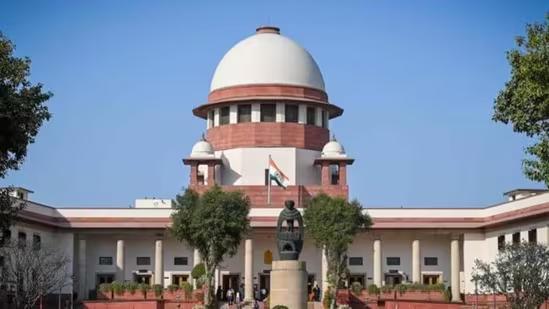
Court can’t grant assent to bills, only Guv & Prez can: Maha to SC
The ongoing controversy surrounding the power of the judiciary to impose timelines on the Governor and President to deal with bills passed by state assemblies has taken a new turn. The Maharashtra government has made a strong argument in the Supreme Court, stating that courts cannot accord assent to bills and that only the Governor and President have the power to do so. This statement was made by Senior Advocate Harish Salve, representing the Maharashtra government, during the hearing of a presidential reference on the matter.
The presidential reference was filed by the Centre, seeking clarification on whether the court could impose timelines on the Governor and President to deal with bills passed by state assemblies. The reference was filed after the Madras High Court had passed an order directing the Governor of Tamil Nadu to give assent to a bill within a specified timeframe. The Centre had challenged this order, arguing that it was beyond the jurisdiction of the court to impose such timelines.
The Maharashtra government’s argument is that the Constitution clearly vests the power of assent with the Governor and President, and courts cannot usurp this power. Salve, while representing the Maharashtra government, emphasized that the court’s role is limited to interpreting the Constitution and the laws made thereunder, and it cannot substitute its discretion for that of the constitutional authorities.
He further argued that the court’s intervention would undermine the federal structure of the country and create uncertainty and confusion. Salve also pointed out that the court’s power to issue directions or writs is limited to ensuring compliance with the law, and it cannot substitute its discretion for that of the constitutional authorities.
The Maharashtra government’s argument is in line with the Constitution’s scheme, which clearly vests the power of assent with the Governor and President. Article 111 of the Constitution provides that a bill passed by both Houses of Parliament shall be presented to the President for his assent, and only after receiving the President’s assent can it become a law. Similarly, Article 199 of the Constitution provides that a bill passed by the state legislature shall be presented to the Governor for his assent, and only after receiving the Governor’s assent can it become a law.
The court’s power to issue directions or writs is limited to ensuring compliance with the law, and it cannot substitute its discretion for that of the constitutional authorities. The court’s role is limited to interpreting the Constitution and the laws made thereunder, and it cannot usurp the powers of the constitutional authorities.
The Maharashtra government’s argument is also supported by the decisions of the Supreme Court in this regard. In the case of Union of India vs. Association of Democratic Reforms, the Supreme Court had held that the court’s power to issue directions or writs is limited to ensuring compliance with the law, and it cannot substitute its discretion for that of the constitutional authorities.
In conclusion, the Maharashtra government’s argument that courts cannot accord assent to bills and that only the Governor and President have the power to do so is well founded. The court’s power to issue directions or writs is limited to ensuring compliance with the law, and it cannot substitute its discretion for that of the constitutional authorities. The court’s role is limited to interpreting the Constitution and the laws made thereunder, and it cannot usurp the powers of the constitutional authorities.
Source:






